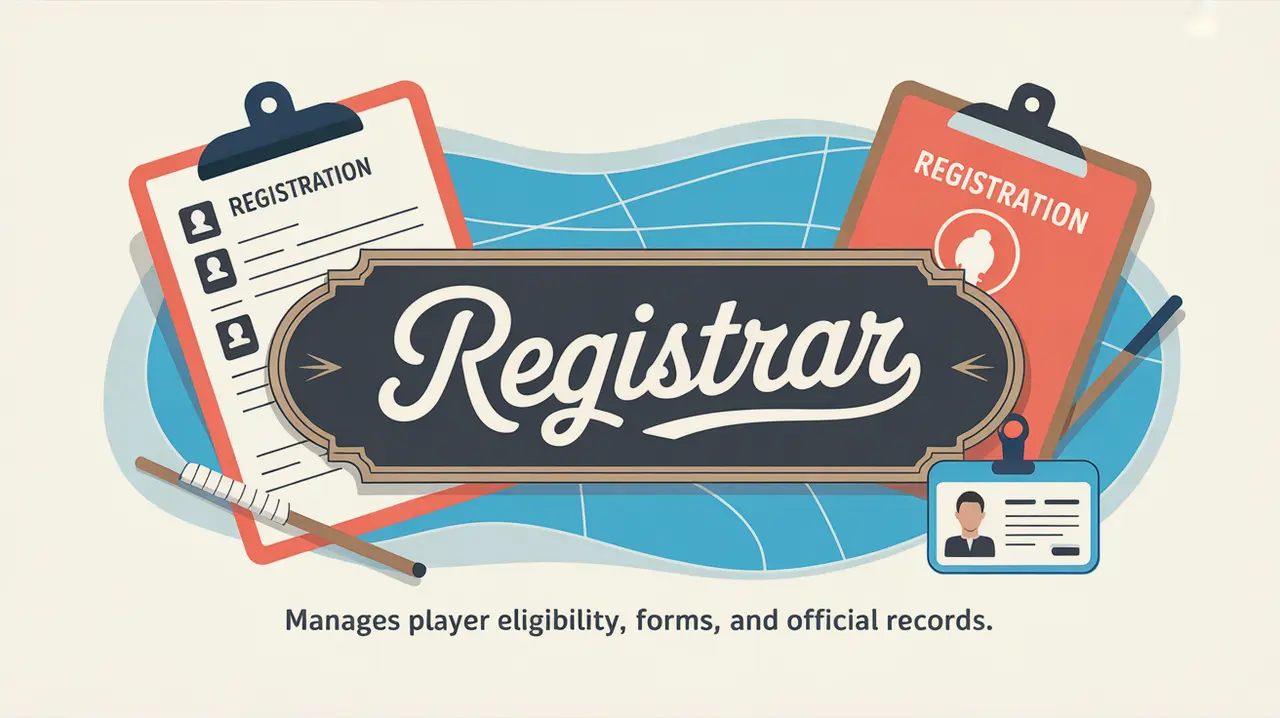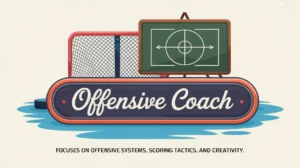Jim’s Intro to the Registrar
Hi folks, Jim here, the only commentator who once tried to fill out a senior player registration form and ended up accidentally signing myself up for U12.
What is a registrar?
A registrar is responsible for managing all player and team registrations, eligibility documentation, and official records required by leagues, associations, or governing bodies.
They make sure every player is properly rostered, every coach is certified, and every deadline is met so that the team can compete without hiccups. Without them, all the training and strategy in the world won’t matter, because the team wouldn’t be allowed to play.
How does it work?
Registrars keep the team’s administrative foundation solid through document management, compliance, and coordination:
Player Registration
- They collect and submit all player information, forms, and fees required by leagues or associations.
- This includes birth certificates, waivers, medical forms, and sometimes transfer paperwork.
Coach and Staff Certification Tracking
- Registrars ensure all coaches and support staff meet required certifications, such as background checks, safety courses, or coaching licenses.
Roster Management
- They compile official team rosters and submit them to leagues, verifying every player’s eligibility and status.
- Any roster changes during the season (such as call-ups, releases, or transfers) run through them.
League Communication
- Registrars liaise with league officials to clarify rules, resolve eligibility questions, and confirm deadlines, acting as the administrative point of contact.
Record Keeping
- They maintain organized records of all forms and certifications, often for multiple years, ensuring the team is audit-ready at any time.
Common Situations Involving Registrars
- Preseason Rostering: Getting every player cleared before the first game.
- Certification Deadlines: Making sure all coaches are up to date.
- Roster Adjustments: Handling player movements correctly.
- League Audits: Producing documentation when requested.
- Eligibility Disputes: Clarifying rules and providing evidence.
How do you make good decisions with it?
Effective registration relies on organization, timeliness, and precision.
- Meet Every Deadline: Late submissions can disqualify teams.
- Double-Check Details: Errors on forms can lead to big problems later.
- Keep Clear Records: Documentation is your insurance policy.
- Communicate with Families and Staff Early: Avoid last-minute scrambles.
- Know the Rules Cold: Eligibility varies between leagues and age groups.
How do you master it?
Mastering the registrar role requires attention to detail, strong administrative skills, and a thorough understanding of league regulations. The best registrars are early planners and meticulous record keepers, ensuring nothing slips through the cracks.
What does it look like when done right?
A great registrar ensures the team is always eligible, compliant, and ready to play, with no delays, disputes, or last-minute paperwork emergencies. Everyone can focus on hockey because the foundation is rock solid.
Commentator’s Corner
Jim’s Take
The registrar is like the referee of paperwork. You may not see their work on the ice, but if they miss something, the whole season can be blown dead.
Parent Tip
Turn in forms and information on time. Registrars juggle dozens of deadlines, and your promptness keeps everything moving smoothly.
Player Tip
Keep your information current. If something changes, let the registrar know. It matters more than you might think.
A Final Thought
The registrar is the guardian of eligibility and compliance, blending organization, rule knowledge, and reliability to keep teams cleared for competition. When mastered, the role combines precision, foresight, and discipline, ensuring the season unfolds without administrative surprises.









